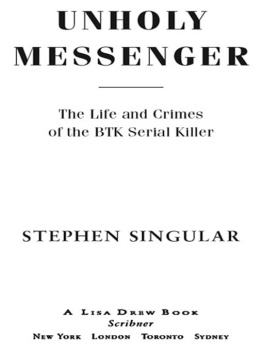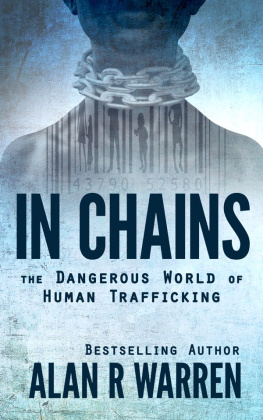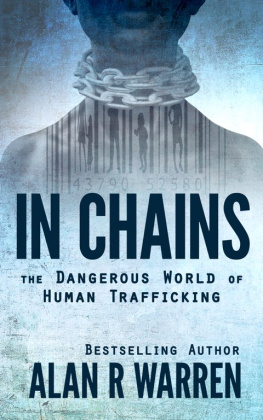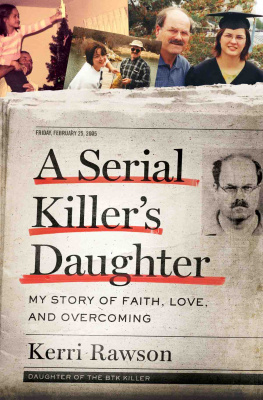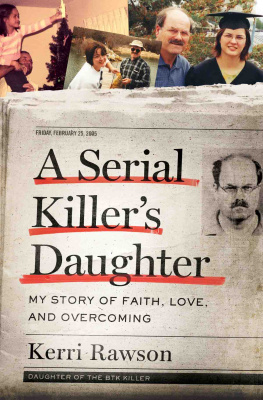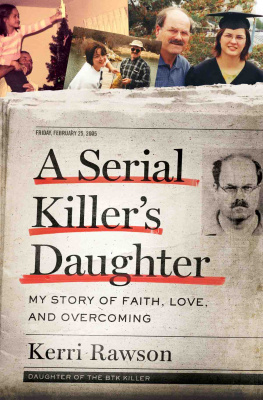reproduction in whole or in part in any form.
SCRIBNERand design are trademarks of Macmillan Library Reference USA, Inc., used under license by Simon & Schuster, the publisher of this work.
Library of Congress Cataloging-in-Publication Data is available.
All said and done, my friends, it will be an ill day for us if what most humans mean by religion ever vanishes from the earth. The fine flower of un-holiness can grow only in the close neighborhood of the Holy. Nowhere do we tempt so successfully as on the very steps of the altar.
The Screwtape Letters BYC. S. LEWIS
Prologue
P ASTORMICHAELCLARK had just finished writing his Sunday sermon and was satisfied with it. Hed been a minister for more than two decades, and it was always difficult finding new ways to talk about sin and salvation, about God and evil or the darkness clashing against the light. On this Friday he felt good about his message and choice of words. Hed composed them in his office at Christ Lutheran Church in Park City, Kansas, which held knickknacks hed collected over the years. Stuffed toy frogs perched on bookshelves and a plastic armadillo sat on a table, along with some props he used when performing as a clown. Pastor Clark looked something like the actor Karl Malden, with a paunch and a small bump on his round, prominent forehead. He was a born ham, and when he put on his outlandish polka-dot uniform, with a big red nose and a yellow mop on his head, he turned into Rufus, who enjoyed both entertaining and assisting people struggling with grief. Pastor Clark knew a lot about grief and personal tragedy. Laughter was one of his major weapons against sadness, and he used it every chance he got. Once or twice hed conducted church affairs in his clown outfit, which challenged his small-town, rural congregation. The few hundred members of Christ Lutheran were low-key, practical people, not given to wild outbursts of irreverence or humor. Their spiritual expectations didnt include many frills.
I want my minister, says a worshipper, to give me just one thing to hang on to each Sunday, when bad things happen during the coming week. I dont want him trying to solve the worlds problems from the pulpit. Thats somebody elses job. I want him to help me when I need help with something realafter the trouble hitsas it always does. Thats what were payin him for.
Christ Lutheran was set out in the countryside a few miles north of Wichita and had a sloping metal roof and a modest steeple. Half-circled by a stand of pines and surrounded by wheat fields, a horse farm, and long, flat stretches of land, it evoked a large, ranch-style home. The air was so quiet and peaceful you could hear the pine-needle whispers and the soft creaking of the swing set behind the church. It was the kind of friendly, open place where people waved at you from their cars, even if theyd never seen you before. When Pastor Clark had arrived at Christ Lutheran half a decade earlier, some folks hadnt known quite what to make of him. He liked to go up to strangers, especially women, and ask if they wanted to see one of his stool samples. If they didnt turn their back on him or walk away, hed pull a small, black container from his pocket, labeledSTOOL SAMPLE, and take off the lid. Inside was a tiny, carved three-legged stool.
I learned a long time ago, he says, that certain people wont like you if you joke around and have too much fun. I can deal with that, but dont try to make me miserable. Thats not gonna work.
With his sermon finished and the clock approaching 12:30 p.m., he was hungry and ready to eat. He left his desk, slipped into his winter coat, and started down a short hallway toward the front door. On his left was the churchs large, spare sanctuary, and facing him at the halls end was a dining area where the congregation had coffee and cookies between the two Sunday-morning services. Everyone at Christ Lutheran knew everyone elseknew their children, jobs, extended families, and religious habits. They enjoyed gathering in the dining room to have a cup and trade local gossip or talk about church business. Right above this area, on the second floor, were the new Bible-study classrooms, completed last fall. The churchs top lay official, Dennis Rader, had pushed hard for the construction of these rooms and overseen much of the building during the second half of 2004.
Eight weeks ago, on January 1, 2005, hed been elected president by the congregation and now chaired the monthly council meetings and set the agenda for the upcoming year. Pastor Clark referred to him as Christ Lutherans spiritual leader and Rader was at the church about as much as the minister was, tireless in his dedication to detailswashing the windows, painting the stripes on the asphalt parking lot, and cleaning up after events. Pastor Clark had become so used to having Rader nearby that on Sunday mornings he didnt look around before calling over his shoulder, Dennis, could you please light the candles on the altar? Or, Dennis, have you checked the sound system? Or, Dennis, are the programs ready to be handed out? Rader and his wife, Paula, who sang in the church choir, were the backbone of the congregation. After thirty years of service at Christ Lutheran, and decades of building goodwill, loyalty, and trust, Dennis was the natural choice for president.
Buttoning up his coat, Pastor Clark glanced through the two sets of glass doors that led out to the parking lot. He saw a man in a black leather coat with three other men lined up behind him. The pastor thought they were salesmen, which struck him as odd and annoying. Why would four men come to a church to try to make a sale? They didnt have an appointment and he didnt have any time for them. He didnt care what they were peddling; he was getting hungrier by the moment. All he wanted to do was jump into his red-and-white pickupthe one with theRUFUS license plateand go eat. Hed be polite with these guys, the way he was with everyone, but get rid of them fast.
As he charged through the first set of doors, the man in the dark leather coat opened it slightly and revealed a shiny police badge.
The minister stopped cold.
Uh-oh, he muttered to himself. This cant be good.
The three other men now revealed their badges in what could only be called a show of force.
Pastor Clark approached them, unlocking the second set of doors. The lead officer stepped inside and introduced himself as Lieutenant T. K. Bridges with the Wichita Police Department. The trio of backup followed him in, also identifying themselves as officers, and although the minister looked for humor in almost every situation and had thought of making a joke about their presence in his church, he could tell they were in a serious mood and held his tongue. At the same time, he couldnt help wondering how long this was going to take and when he might get lunch.
Lieutenant Bridges pulled out two pages of typewritten material and showed them to the preacher.
I have a search warrant for your church, Bridges said.
Whats going on? the minister asked, trying to maintain calm. Whats this about?
Can we talk in private?
Sure, the pastor said, turning and leading them down the hall toward his office, only ten or fifteen yards away.
You cannot believe, he would say later, how many bad things can go through your mind in the time it takes to walk that far.

